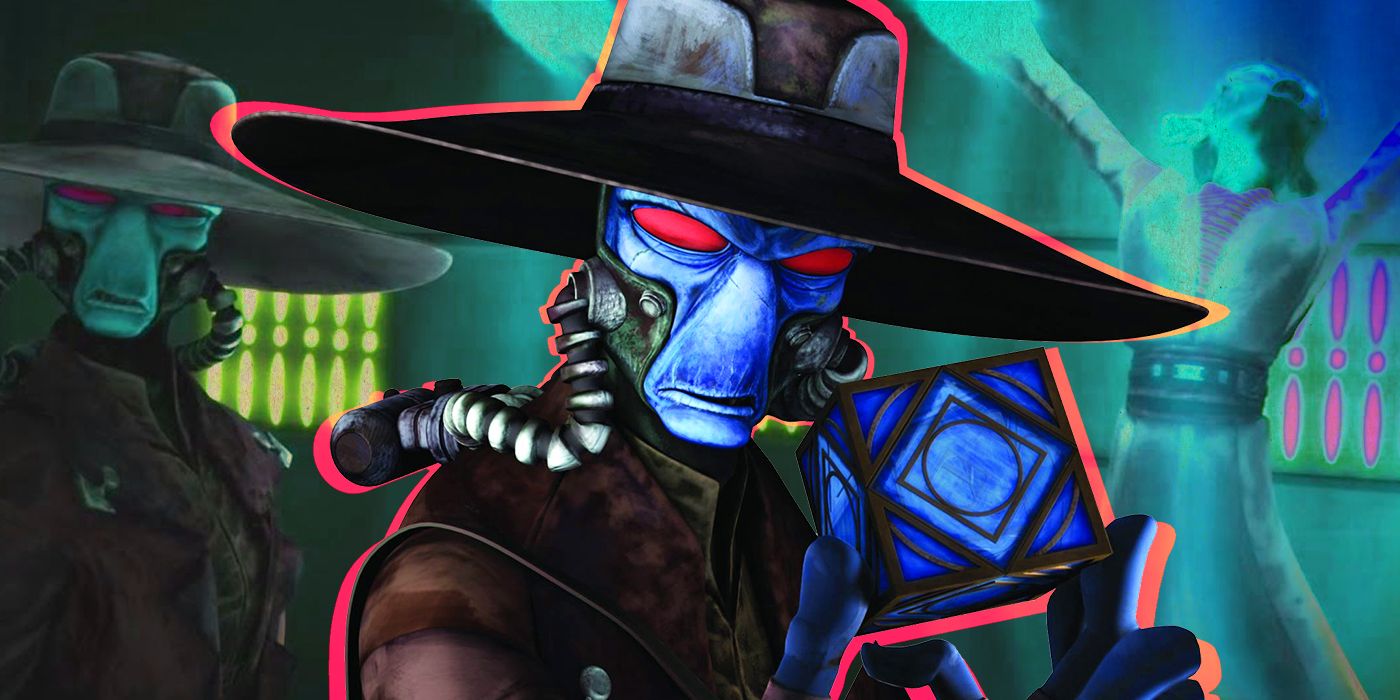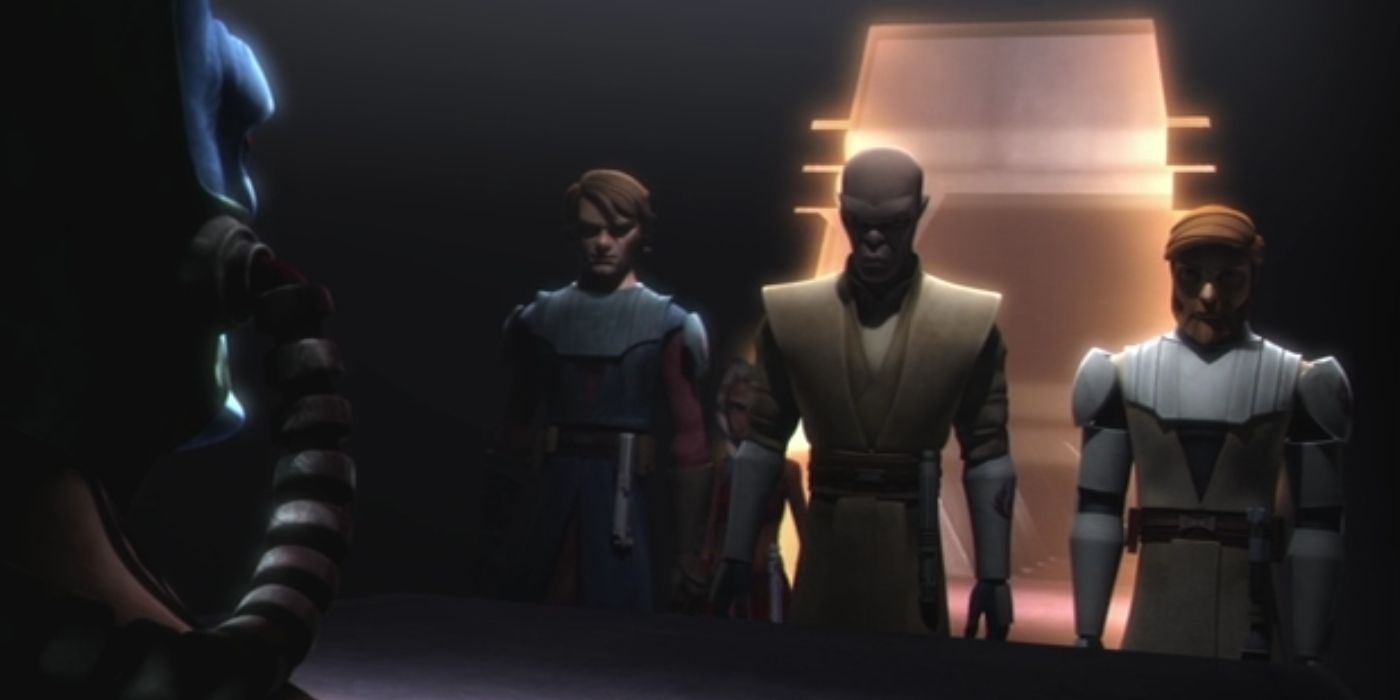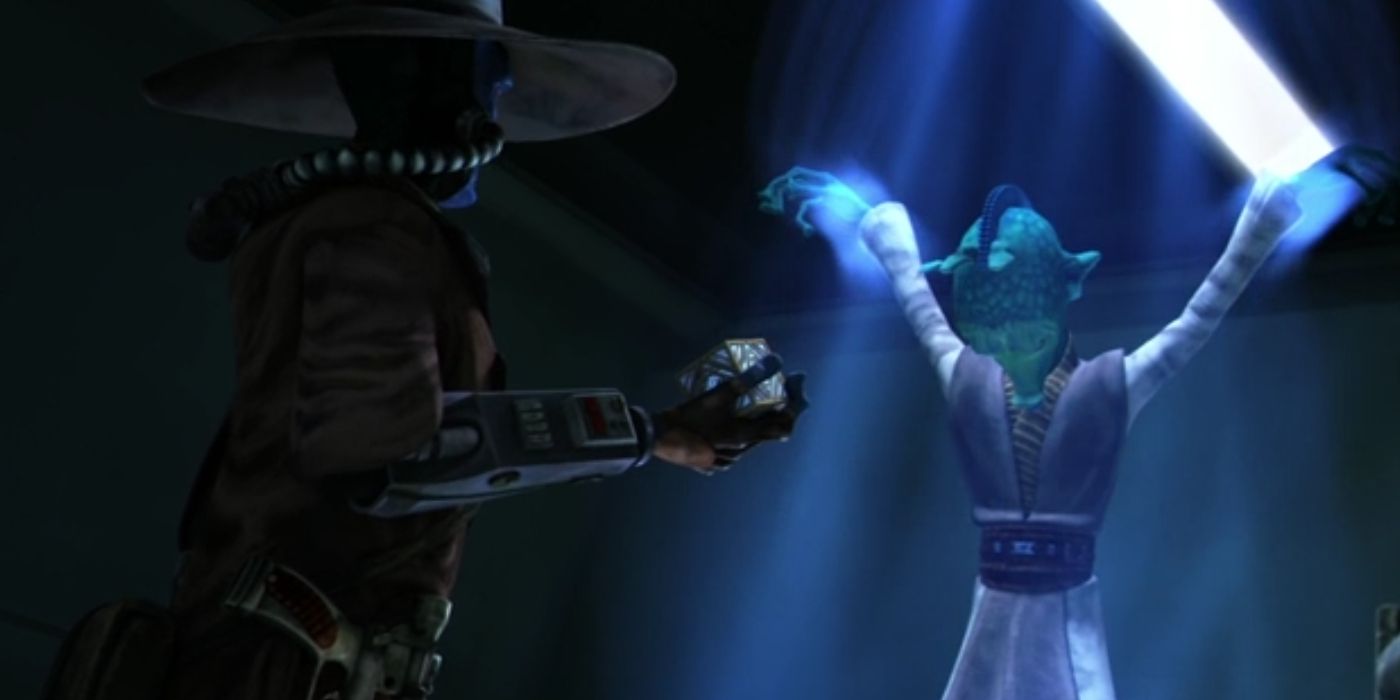
While torture might seem completely antithetical to the life of a Jedi, Jedi morality sometimes falls into more of a gray area. In the second season of Star Wars: The Clone Wars, the protagonists are faced with a moral dilemma when bounty hunter Cad Bane steals a holocron containing the names and locations of every known force sensitive child. He then delivers the information to Darth Sidious, who plans to locate the children and experiment on them.
In the third episode, "Children of the Force," Cad Bane kidnaps two such children and the Jedi must race against time to save them and regain the holocron. Despite the dire situation, the show demonstrates that engaging in torture is wrong through the artistic choices during the torture scene and through the eventual rescue of the children.

Before deciding to combine their powers, Ahsoka Tano, Anakin Skywalker, Mace Windu and Obi-Wan Kenobi briefly discuss ways to make Cad Bane cooperate. Because Bane seems resistant to Jedi mind tricks, Ahsoka suggests combining their powers to overcome his resistance, unaware of the possible danger. The suggestion at first seems reasonable; Jedi have used the Force Meld to save people in the past. However, Mace Windu informs her that their combined powers could kill Cad Bane. Despite the risks, Anakin argues that they have no other choice. He quickly gets the other Jedi to agree, and they reenter the room to continue the interrogation with their powers combined, even knowing that the effort might kill Bane.
The animation frames this use of combined powers as a dark act. When the Jedi reenter the interrogation room, they are backlit, and ominous music plays in the background. While the expressions on their faces might be a result of intense concentration, they appear increasingly angry as they repeatedly command, "You will take us to the holocron." Bane continues to fight the compulsion, but he also is obviously wracked with pain. Anakin shows no mercy upon seeing Bane's distress and instead suggests they try again. Bane appears to agree to take them to the holocron, but Ahsoka's concerned face shows that she has some misgivings about the torture once she sees the effects.

The torture scene mirrors another scene in the previous episode of Star Wars: The Clone Wars, "Cargo of Doom." After stealing the Holocron, Cad Bane needs a Jedi to use a kyber crystal to unlock the information. So, Bane kidnaps Jedi Master Bolla Ropal and tries to make him cooperate by torturing him. One of the droids warns Bane that increasing the voltage of the torture machine could kill Ropal, but Bane dismisses the droid's concerns and proceeds anyway. Ropal still does not submit, and he dies to protect the children. The parallel construction of these two scenes calls the Jedi's choice to torture Bane further into question.
In both instances, the torture is unsuccessful. After the Jedi torture Bane, he pretends to submit and instead leads Mace and Obi-Wan into a trap. The Jedi still manage to retrieve the holocron, but Bane escapes. The trap shows that Bane already had an escape plan and probably would have led the Jedi to the holocron's location even without the torture. Meanwhile, Anakin and Ahsoka are able to locate the kidnapped children through information they gather from Cad Bane's fuel records. At the beginning of the episode, the tagline states that "the first step to correcting a mistake is patience," and the events of the episode show that patient investigation, not torture, yields results.
Anakin Skywalker, Mace Windu and Obi-Wan Kenobi's torture of Cad Bane shows a startling willingness by the Jedi to use the same tactics they condemn. From a certain point of view, their actions could be considered justifiable because Cad Bane's actions were threatening children, with two babies in immediate danger. However, the rest of the episode of Star Wars: The Clone Wars shows that the use of torture is a rash, and ultimately futile, action.
0 Comments